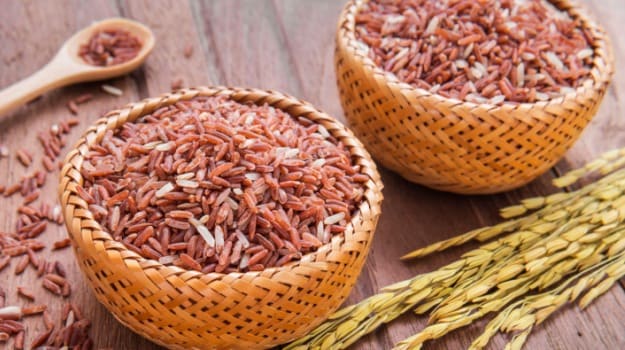In part one, I shared some foods that might be new to some of you and your family. In part two, I’ll be introducing familiar foods but with a new spin.
Oils
High-quality fat is about the best investment you can make for your health.
Our brains, nervous and reproductive systems all have large quantities of fats.
Each of our cells is covered in fat. We need fat to make use of fat-soluble vitaminslike vitamins A and D.
Fats are an important part of a healthy body. Fats also help us feel full for longer and help regulate blood sugar levels.
There is much misinformation out there regarding what a healthy fat is and how to use them in your everyday cooking.
Oils that are safe for cooking with include coconut oil, butter, ghee, animal fats and palm oil. Then there are oils that are safe to use in their raw forms such as olive oil, avocado oil, sunflower oil, safflower oil, sesame seed oil and peanut oil.
Most vegetable oils aren’t safe to cook with, meaning they shouldn’t be heated. When you heat these oils, they become rancid, rotten and will flood your body with free radicals.
Oils like corn and canola, unless you are making them yourself, shouldn’t be consumed at all. They are highly volatile (1,2).
When selecting an oil, make sure it is organic and free from chemicals like solvents. Select oils that are in dark containers, as oils will react to light and cause them to become rancid.
Water
We don’t often think of water as a super nutrient but it is. It is so important that we cannot live long without it (3).
During Ramadan, it’s easy to become dehydrated. An added concern is that if the body is denied water over a long period of time (longer than a month), your thirst mechanism will shut down (3).
This means that your body is thirsty, but it just won’t signal the brain anymore. Just because we are fasting doesn’t mean that our regular bodily functions stop requiring water.
Headaches, fatigue, fuzzy thinking, irritability and illness are often caused by inadequate hydration.
Brown rice
All over Asia, rice is a staple food, the importance of which cannot be overstated. Many nutritional deficiencies occur when white rice is consumed, the most notable being a thiamine (B1) deficiency, which can lead to the disease beriberi or a niacin (B3) deficiency also known as pellagra.
The B vitamins are essential for maintaining health and B3 specifically is important in maintaining heart health.
Interestingly, both beriberi and pellagra were unknown conditions before the introduction of white rice (4,5).
Recipe:
4 cups brown rice, 6 cups water, 1strip kombu, 1 tablespoon butter, 1/2 onion diced, 4 garlic cloves, minced, 1 pinch saffron, 1 teaspoon turmeric, salt, and butter.
Method:
In a stockpot, heat butter and add onions. Fry for 1-2 minutes. Add garlic and fry for 1-2 minutes. Add a pinch of salt.
Pour in the water and add the kombu, 1 tablespoon butter and enough salt to taste. Bring to a boil. Add turmeric, saffron and rice.
Cover (leave a space for the steam to escape) and let boil for 15-20 minutes. Keep an eye on it and add water if need be. Reduce heat to medium and let cook for 15 minutes.
Reduce heat to a simmer and let cook for another 15 minutes. Remove room heat and let sit until absolutely tender.
Don’t miss the last installment of our new nutrition series for Ramadan. I’ll be sharing foods you always wanted to try, but never knew how to eat, like seaweed!
This article is from Science’s archive and we’ve originally published it on an earlier date.
References:
- Fife, Bruce, Dr. C.N., N.D, Coconut Cures. Piccadilly Books, Limited (March 1, 2005).
- Teicholz, Nina, The Big Fat Surprise: Why Butter, Meat & Cheese Belong in a Healthy Diet. Simon & Schuster (2014).
- Batmanghelid, J, Dr. MD, Your Body’s Many Cries for Water. Global Health Solutions, Inc.; Third Edition edition (November 1, 2008).
- Carpenter, Kenneth J.,” white rice, and vitamin B: a disease, a cause, and a cure.” Choice November 2000 38:38-1592.
- Fallon, Sally, Nourishing Traditions. Newtrends Publishing, Inc (2003).
